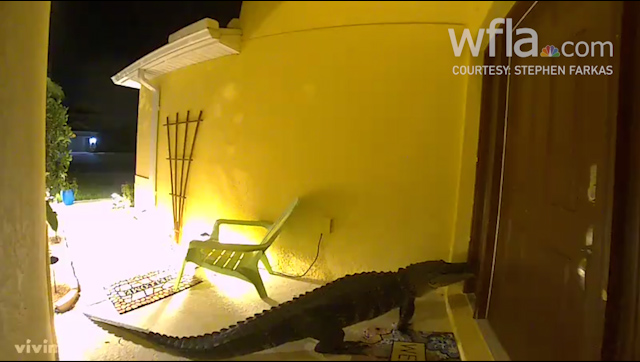PASCO COUNTY, Fla. (WFLA) – As cars whiz down Fort King Road in Pasco County, drivers go by a sign marking life in times past. It says Freedtown — telling people about a part of Pasco County history, they may not know about.
Down Bozeman Road off Fort King, a mile or so back, are acres and acres with a story to tell.
In 1866, 200 acres south of Lake Buddy was inhabited by freed slaves and appropriately named the Freedtown settlement.
Pasco historian Jeff Cannon has been looking into Freedtown for years.
“1869 was a time of reconstruction. We were literally four years out from the Civil War. The freedman’s bureau which was a newly formed goverment ogrnization, were helping these newly freed slaves acquire land.”
Former slave Benjiman Baisden was among them. He founded Freedtown.
“The unique part aspect of Freedtown is that Benjiman Baisden went and did this on his own,” Cannon said.
For many years the town flourished and several families moved to the settlement. There was a school formed for black children. There was a church, as well.
“The superitendent of that school was the community’s founder. The Baisden family deeded one acre of property to the church and the church actually had a cemetary at one time,” said Cannon.
Like much of Florida at the time, the principal source of livlihood for Baisden and the entire community, was citrus.
His citrus crops florished… in fact reports show by 1880 his orange grove had “borne him three crops within a year.” The living was good.
University of South Florida-St. Pete professor Dr. Gary Mormino said the citrus industry was booming all across the Florida at the time.
“People talked about orange fever in Florida. For just a few hundred dollars, a farmer could come here, buy 10 acres and put out orange trees and do quite well,” he said.
By 1890, the Freedtown settlement had grown considerably. Several families called the land their home. The people were absolutely thriving and then the unexpected happened.
December 27, 1894 is the day Florida froze.
“An arctic clipper came down and scoured Florida. I think it was 28 degrees in Tampa, Dr. Mormino said.
The orange industry suffered. Photos from the Florida State archives shows the frozen citrus litering the ground throughout the Sunshine State.
“It was bad enough to kill the crop and not the trees, Dr. Mormino said.
Then it warmed up for a couple of months before round 2 hit.
“On February 7, 1895, the Dakota Clipper arived. This was a killer freeze. It was 22 degrees in Tampa, 10 degrees in Ocala. They were skating on ponds in Tallahassee,” Dr. Mormino said.
This time the damage to citrus in Florida was worse.
“Overnight, as the commissioner of agriculture said, by morning’s mist, most of the economy of Florida is gone.”
Freedtown was no exception. Crops were killed off and nearly everyone left. Some headed 2 miles away to nearby Dade City.
The AME Church in Freedtown relocated there. It’s now Mt. Zion AME, which still worships today.
Benjiman Baisden, however, stayed on in Pasco, at least for another few years. After Jane, his wife of 50 years died, he moved south to Tampa to be with his son Samuel.
Samuel’s grandson, Benjiman Baisden’s great grandson, also named Ben, lives in Tampa. He’s proud of his ancestor’s tenacity, at a time when it was difficult for African-Americans to have it.
“Some of that stuff was passed on to me, because right now I’m a leader in the community. I do things for the community. We have this organization called the West Tampa Alliance and I said to myself, ‘How did I get this type of passion to wanna help people, you know.’ I’m figuring now, it had to come from there,” Baisden said.
His great grandfather is now established as a part of Pasco County history, having been chosen to be one of the county’s founding fathers. Information about him is found at the Pioneer Museum in Dade City.
“This is the drawer we have all of our founding fathers in and they had to be here before 1887 when we became a county,” said Margie Partain, director of History at the museum.
Partain recognizes Baisden as someone who made an impact in Pasco and left a legacy of passion that has it roots in these rolling hills.
“He was a very ‘before his time’ person,” she said. He formed a settlement that may have vanished, but the spirit of the people, live on.

